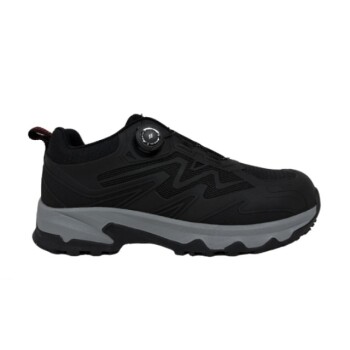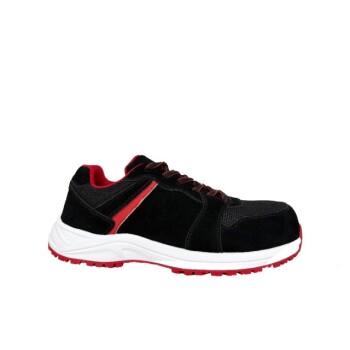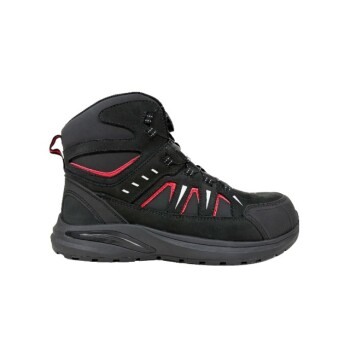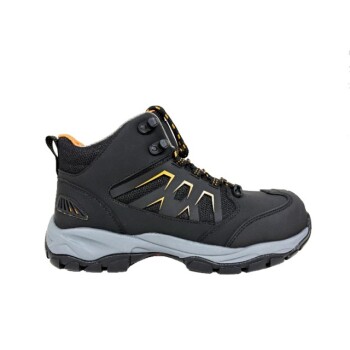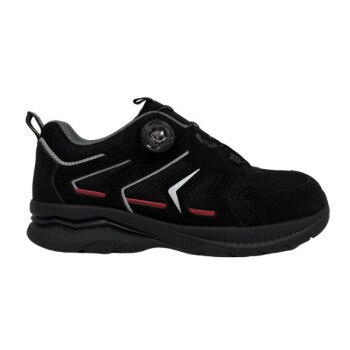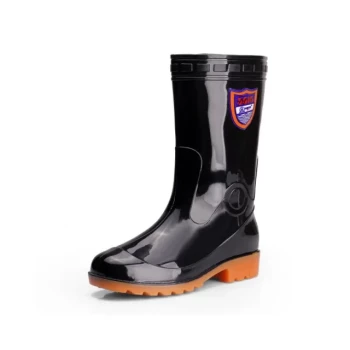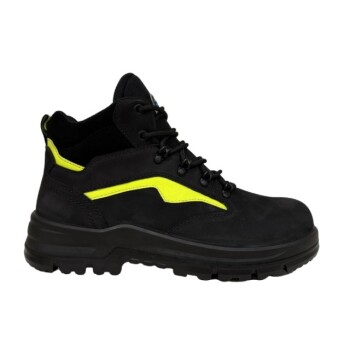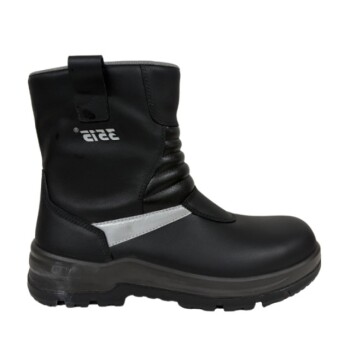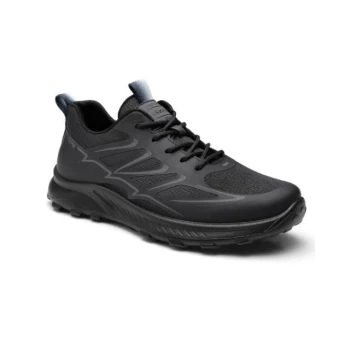Wearing outdoor shoes inside your home introduces a significant range of unwanted contaminants into your living space. The primary drawbacks are tracking in dirt, bacteria, and allergens that compromise indoor hygiene and air quality. Additionally, shoes can cause premature wear and tear on your flooring and, if they are not designed for long-term wear, may even contribute to foot health issues.
The decision to wear shoes indoors extends beyond simple cleanliness. It's a trade-off between convenience and the introduction of invisible health risks, with the primary drawback being the transfer of outdoor pathogens and allergens directly into your personal environment.
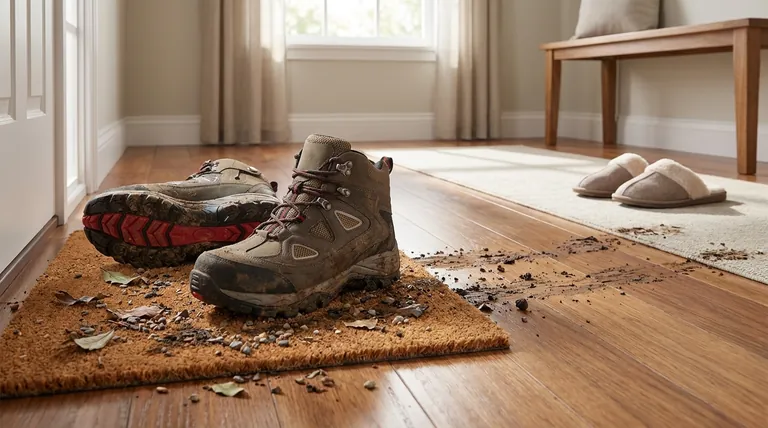
The Unseen Contaminants on Your Soles
The most compelling argument against wearing shoes indoors is based on what you cannot see. The soles of your shoes are a primary vehicle for transporting outdoor pollutants into your home.
Tracking Bacteria and Viruses
Your shoes come into contact with countless surfaces, picking up bacteria and viruses. Studies have identified harmful bacteria on footwear that can cause a range of infections, from intestinal and urinary tract infections to pneumonia.
Introducing Allergens and Pollen
For individuals with allergies or asthma, outdoor shoes can be a major source of irritation. They track in pollen, soil, and other environmental allergens, which then become embedded in carpets and circulated in the air.
The Risk to Children and Pets
Young children and pets spend a significant amount of time on the floor. This direct contact increases their exposure to any contaminants brought in on shoes, posing a greater health risk to them than to adults.
The Physical Impact on Your Home and Body
Beyond hygiene, the practice of wearing shoes indoors has tangible effects on both your living space and your physical well-being.
Accelerated Wear on Flooring
Hard-soled shoes, especially those with trapped gravel or debris, can scratch and scuff hardwood, laminate, and vinyl floors. Over time, this constant abrasion leads to noticeable damage and can significantly shorten the lifespan of your flooring.
The Paradox of Foot Health
While some shoes provide necessary support, over-reliance on improper or overly rigid footwear can weaken the intrinsic muscles in your feet. Continuous wear without periods of being barefoot can diminish your natural foot strength and flexibility.
Fungal and Viral Infections
Public spaces are breeding grounds for fungi and viruses that cause conditions like Athlete's Foot and plantar warts. Wearing the same shoes indoors creates a direct pathway for these infections to enter your home and spread.
Understanding the Trade-offs
An objective analysis requires acknowledging the reasons why some people choose to wear shoes indoors. The key is often differentiating between outdoor shoes and dedicated indoor footwear.
The Case for Support
For individuals with foot conditions like plantar fasciitis or those who stand for long periods on hard surfaces, shoes with proper arch support and cushioning are essential. They can reduce foot pain, minimize joint impact, and improve overall posture.
The Need for Protection
Shoes act as a simple barrier against household injuries. They protect your feet from being stubbed on furniture, stepping on sharp objects like a dropped piece of glass, and can prevent slips on slick surfaces.
Cultural and Environmental Factors
In many cultures, removing shoes is a fundamental sign of respect and cleanliness. Environmentally, wearing outdoor shoes inside increases the need for chemical cleaning products and water, while also hastening the need for flooring replacement, which carries its own ecological footprint.
Making the Right Choice for Your Home
Ultimately, the best practice depends on balancing your household's specific needs for hygiene, comfort, and health.
- If your primary focus is hygiene and health: Remove outdoor shoes at the door without exception. Consider using comfortable, dedicated indoor-only slippers or shoes if you need warmth or light support.
- If your primary focus is foot support due to a medical condition: Designate a specific pair of supportive shoes to be worn only inside the house. This provides the support you need without tracking in outdoor contaminants.
- If your primary focus is convenience and protection: Acknowledge the risks and commit to a more frequent and thorough floor cleaning schedule to mitigate the introduction of germs and allergens.
By consciously weighing these factors, you can establish a clear and consistent rule that best serves your home's health and your personal comfort.
Summary Table:
| Drawback Category | Key Risks & Impacts |
|---|---|
| Health & Hygiene | Tracks in bacteria, viruses, allergens, pollen; increases risk of infections for children and pets. |
| Home Maintenance | Scratches and scuffs flooring (hardwood, laminate); accelerates wear and tear. |
| Foot Health | Can weaken foot muscles; spreads fungal infections like Athlete's Foot from outdoors. |
Protect your home and health with the right footwear solution. As a large-scale manufacturer, 3515 produces a comprehensive range of high-quality indoor and outdoor footwear for distributors, brand owners, and bulk clients. Whether you need supportive indoor slippers for home use or durable outdoor shoes, our extensive production capabilities ensure you get the perfect product for your needs.
Contact us today to discuss your footwear requirements and discover how we can support your business with reliable, large-scale manufacturing.
Visual Guide
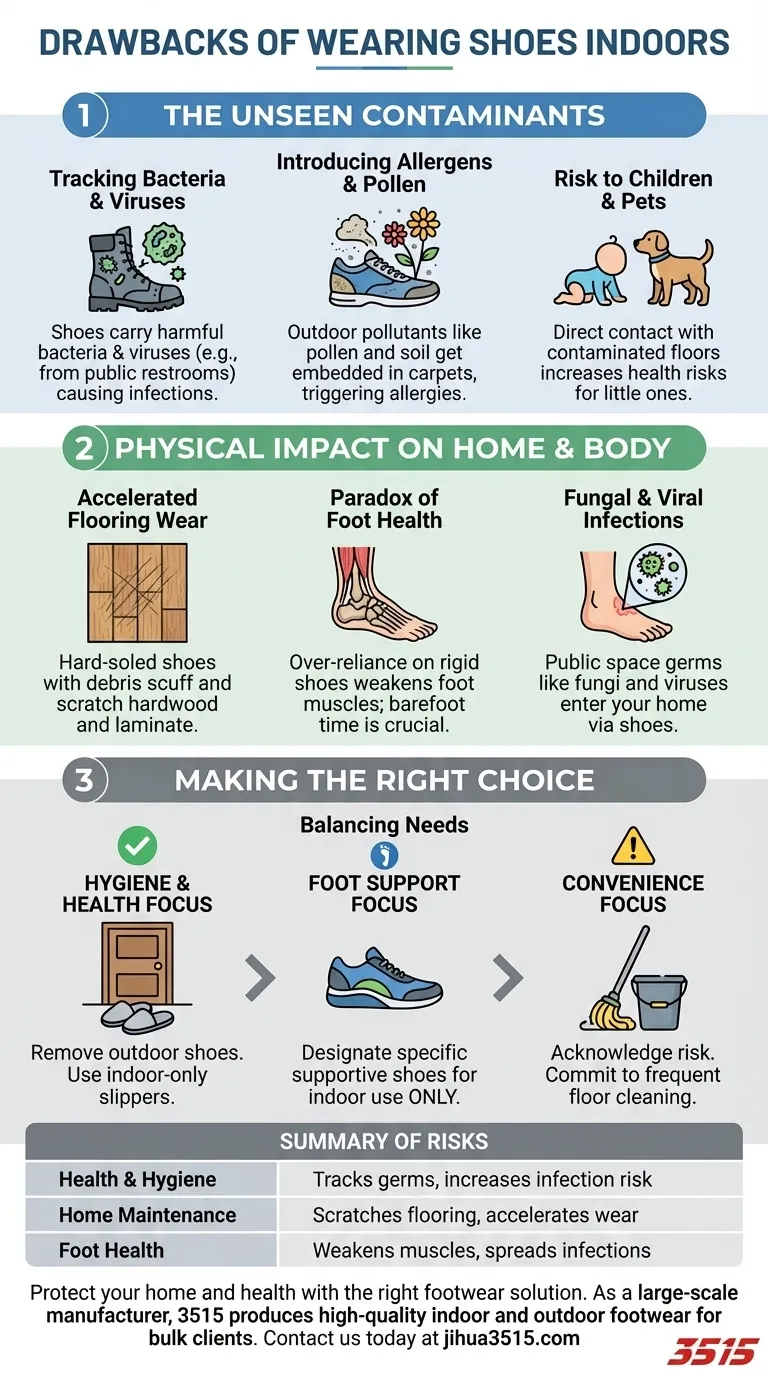
Related Products
- Safety Footwear Wholesale Manufacturer for Custom OEM/ODM Production
- Advanced KPU Athletic Safety Shoe with Steel Toe Cap Anti-Slip Rotary Lacing System
- Premium Suede Sport Safety Shoes for Wholesale & Bulk Orders
- Heavy Duty Nubuck Safety Boots Safety Shoes for Global Distribution
- Premium Sport Style Safety Boots for Bulk Orders
People Also Ask
- How long can you wear safety boots? The Lifespan is Determined by Wear, Not Time
- Do snake bite boots work? Your Ultimate Guide to Effective Snake Bite Protection
- What are OSHA approved shoes? Understanding the Correct Standards for Workplace Safety
- How do safety shoes contribute to cost savings for companies? A Strategic Investment in Risk and Cost Management
- Is safety-toe as good as steel toe? Choose the Right Protection for Your Job

